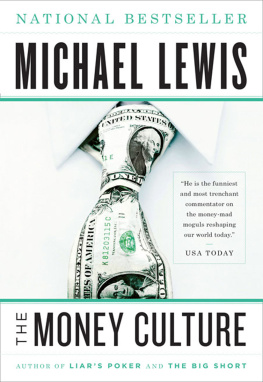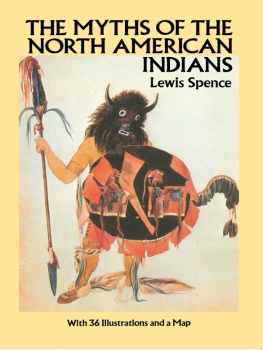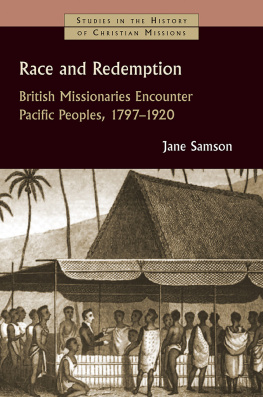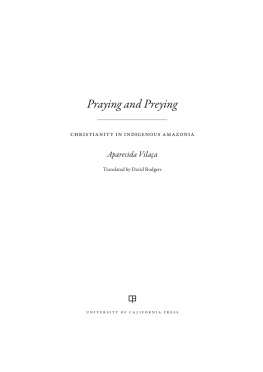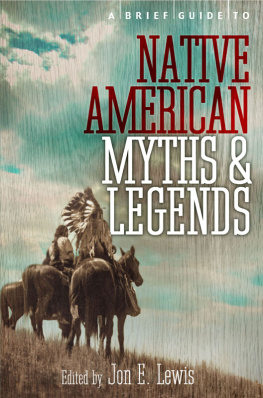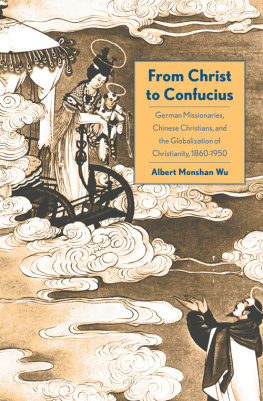The Missionaries
God Against the Indians
Norman Lewis

1
IN 1767 THE ENGLISH navigator Wallis discovered the island of Tahiti. His visit was rapidly followed by those of the French explorer de Bougainville, and Captain James Cook. Between them these men opened up the Pacific. All three captains were overwhelmed by their reception at the hands of the people of Tahiti, and by the gifts showered upon them. Bougainville renamed Otaheiteas it was then calledNew Cythera after the island in Greek legend where Aphrodite had emerged from the sea. When Cook left Tahiti at the end of his second mission he wrote in his journal, I directed my course to the West and we took our final leave of these happy islands and the good people on them. Some years later he was to write, It would have been far better for these poor people never to have known us.
Captain Bligh of the Bountythat stern judge of menwas if possible more impressed. It had been noted back home that the physique of the people of Tahiti was somewhat superior to those of Europe, and the conjecture was that the breadfruit forming a large part of their diet might have contributed to this fact. Bligh spent five months in Tahiti gathering shoots from the breadfruit tree for transportation to the West Indies in the hope of improving the condition of negro slaves. In Tahiti he has become a kind of folk hero, and the memory of him was that he spent much of his spare time playing with the local children. When he finally sailed he wrote: I left these happy islanders with much distress, for the utmost affection, regard and good fellowship was among us during our staytheir good sense and observations joined with the most engaging disposition in the world will ever make them beloved by all who become acquainted with them as friends. A few days later the famous mutiny on the Bounty took place, due to the determination of members of his crew not to return to England but to remain and settle on the islands where they had found so much happiness.
The accounts given by the great navigator, and by the lesser sailors and adventurers who followed them of the civilization of the South Seas produced a deep and even dangerous effect in Europe. Certain thinkers, above all Jean-Jacques Rousseau, who wrote of the Noble Savage, seemed inclined to argue the opinion that man had notas had been so commonly preached and acceptedbeen born in sin, but in his primeval condition was naturally good, and that this original goodness had been concealed due to subjugation of corrupt societies.
A counter-attack by the religious orthodoxy of the day was inevitable. In 1795 the London Missionary Society was formed, its immediate attention focused upon the Pacific; two years later a convict ship bound for Australia put the first missionaries ashore on Tahiti. They, too, were overwhelmed by the warmth of their welcome and since the Tahitians were clearly disposed to give things away they asked for the Bay of Matavai, where they had landed, to be given to them. The request was instantly granted by the local chief, who had no conception of private property in land and was later disconcerted to learn that he and his people were to be debarred from the area.
The evangelists were a strange assortment, picked by the Society on the score of their probable usefulness to uninstructed savages, and they included a harness-maker, bricklayer, farmer, weaver and a butcher and his wife. None of them had ever left England before and few had left their native villages. It was four years before any of them learned enough of the language to preach a sermon to a puzzled though sympathetic audience. The Tahitians built their houses, fed them, and provided them with servants galore, but after seven years not a convert had been made. Children called upon to line up and repeat over and over again this simple verse in Tahitian did so obligingly and with good grace,
No te iaha e ridi mei ei Jehove ia oe? For what is Jehova angry with thee?
No te taata ino wou no tou hamani ino Because I am evil and do evil.
But another seven years of such attempted indoctrination produced no results, then suddenly the great breakthrough took place.
The device which eventually established the unswerving missionary rule is described in a letter to home by one of the brethren, J. M. Orsmond. All the missionaries were at that time salting pork and distilling spiritsPomare (the local chief) had a large share. He was drunk when I arrived and I never saw him sober. Orsmond describes the compact by which Pomare, reduced to an alcoholic, would be backed in a war against the other island chiefs on the understanding that his victory would be followed by enforced conversion. Since Pomare was supplied with firearms to be used against his opponents clubs, victory was certain. The whole nation, Orsmond wrote, was converted in a day.
There followed a reign of terror. Persistent unbelievers were put to death and a penal code was drawn up by the missionaries and enforced by missionary police in the uniforms of Bow Street Runners. It was declared illegal to adorn oneself with flowers, to sing (other than hymns), to tattoo the body, to surf or to dance. Minor offenders were put in the stocks, but what were seen as major infringements (dancing included) were punished by hard labour on the roads. Within a quarter of a century the process by which the native culture of Tahiti had been extinguished was exported to every corner of the South Pacific, reducing the islanders to the level of the working class of Victorian England.
J. M. Orsmond crops up again on Moorea where he is remembered with anguish until this day. After their mass conversion it was hoped that the Tahitians might be induced to accept the benefits of civilization by putting them to work growing sugar cane. A Mr Gyles, a missionary who had formerly been a slave overseer in Jamaica, was brought over, along with the necessary mill to set the industry up. Witnessing the cheapness of labour by means of the negroes he thought the natives of these islands might be induced to labour in the same way. He was mistaken. The enterprise failed, and Mr Orsmond, believing that a too bountiful nature on Moorea diminishes mens natural desire to work, ordered all breadfruit trees to be cut down. By this time the population of Tahiti had been reduced by syphilis, tuberculosis, smallpox and influenza from the 200,000 estimated by Cook to 18,000. After thirty years of missionary rule, only 6,000 remained. Otto Von Kotzebue, leader of a Russian expedition into the Pacific in 1823, long before the decline had reached its terminal phase, wrote: A religion like this which forbids every innocent pleasure and cramps or annihilates every mental power is a libel on the divine founder of Christianity. The Tahitians, he said, were by nature gentle, benevolent, open, gay, peaceful and wholly devoid of envy; they rejoiced in each others good fortune, and when one received a present, all seemed to be equally gratified. It grieved him that every pleasure should be punished as a sin among a people whom Nature destined to the most cheerful enjoyment.
John Davies, one of the pioneer missionaries, wrote a history of the Tahiti Mission which he finished in 1851. It was never published in full, probably because it was considered unpublishable by his superiors in the Society, who spoke of those facts which it would be advisable to expunge altogether. Only in 1961 were a number of chapters, put together with selections from missionary correspondence, published under the imprint of the Hakluyt Society. Davies wrote frankly, and from his account the missionaries would hardly have claimed to be saints. They were the sons of an age that has become a byword for hypocrisy and secret indulgence. Behind a sternly teetotalitarian faade the senior missionaries, Messrs Scott, Shelley, Hayward and Nott, wrote Orsmond, ran a still. From it the King always drank freely. Mr Bicknall, a missionary leader, traded in spirits. Despite the Societys written instructions to the missionaries to avoid to the utmost every temptation of the Native Women, several of the weaker brethren defected to set up house with them. Mr Simpson, a royal adviser, was charged with fathering a daughter on the wife of a Tahitian judge, and even John Davies had to face accusations of philandering.


